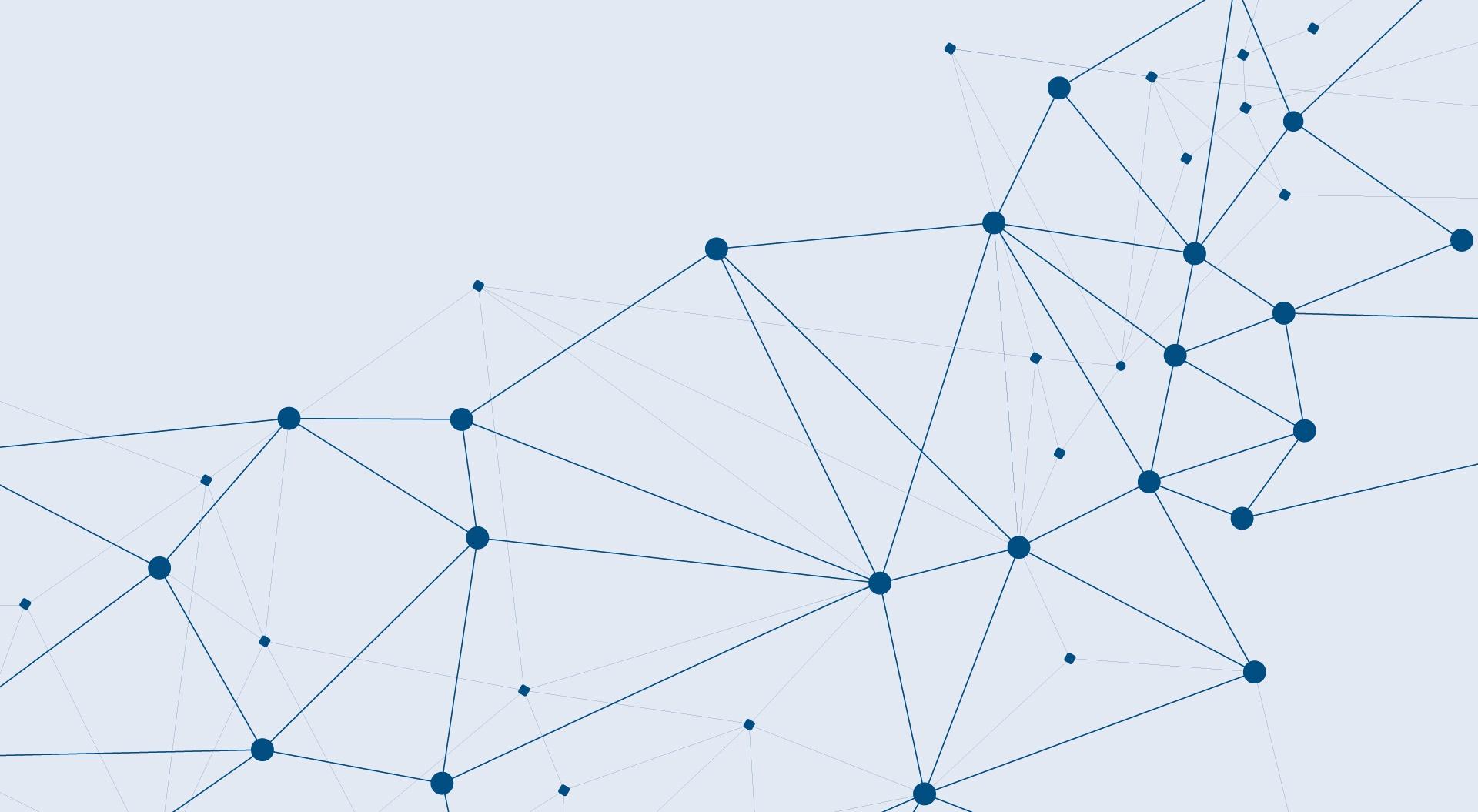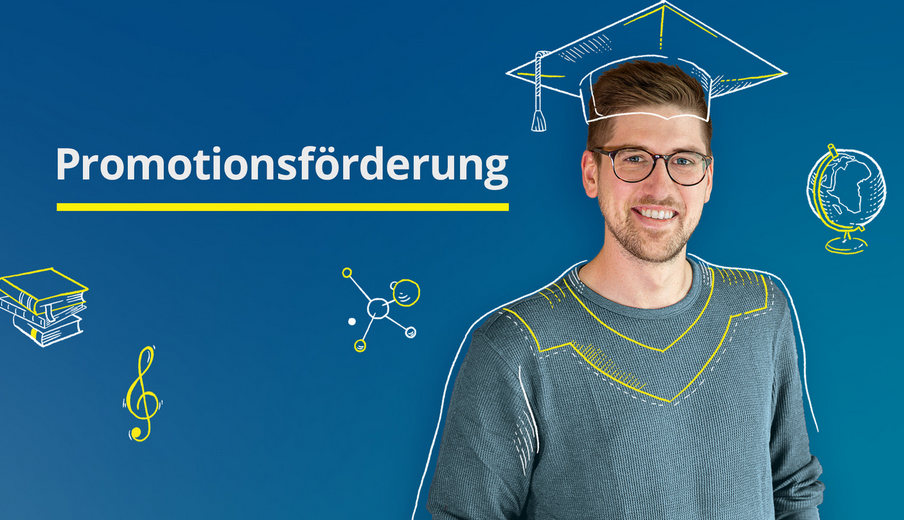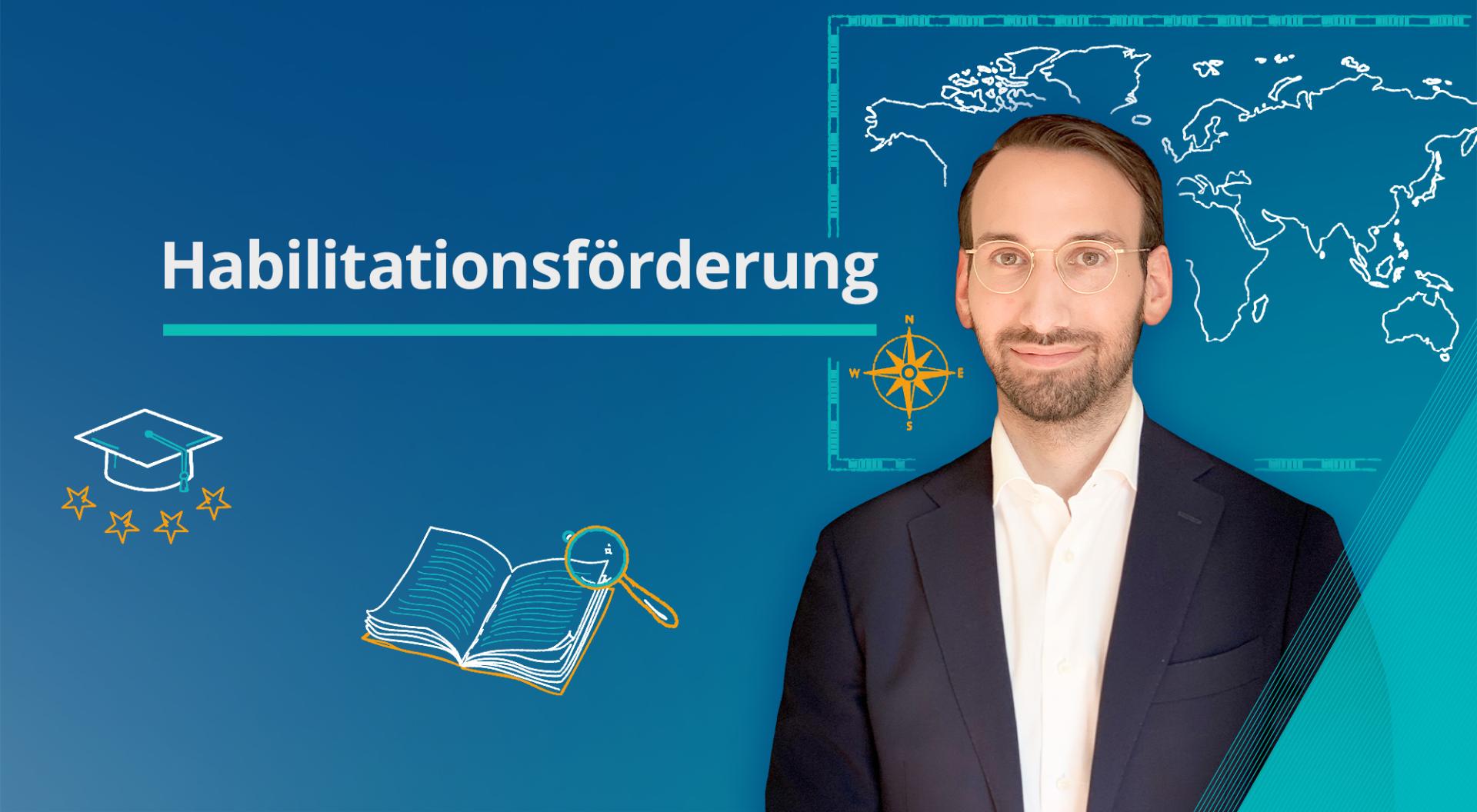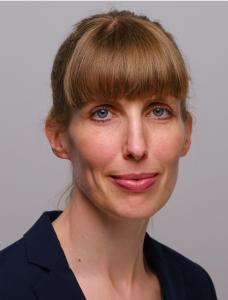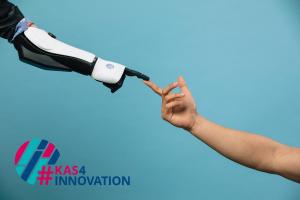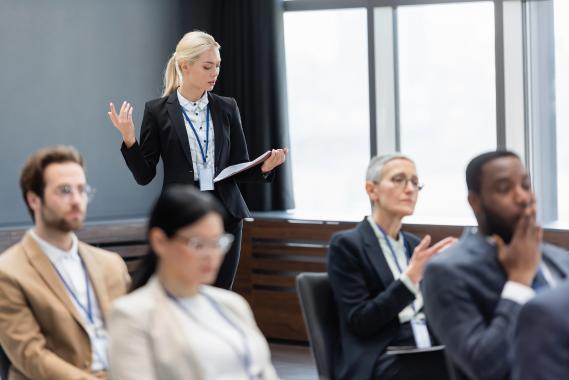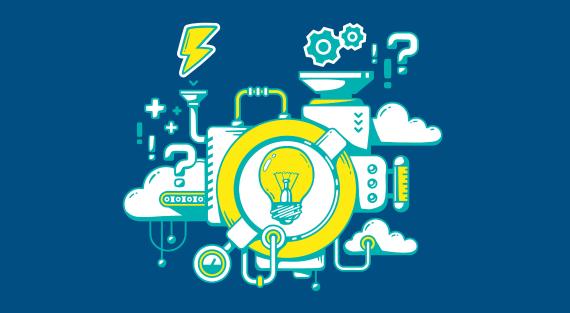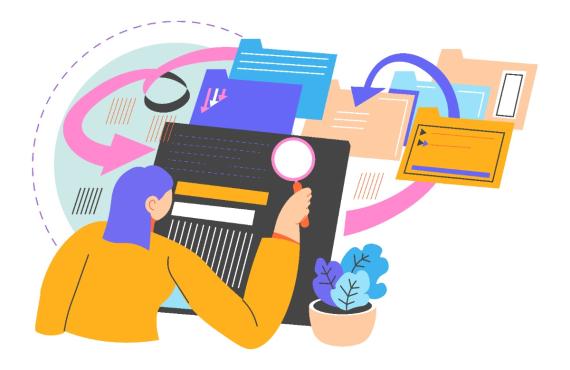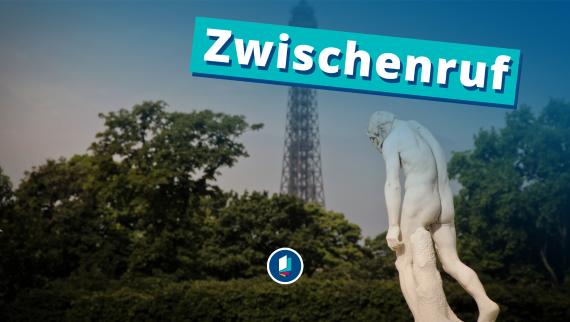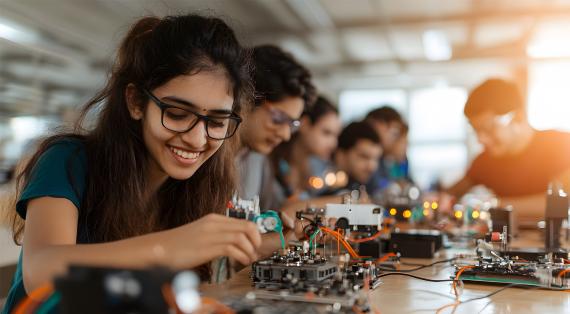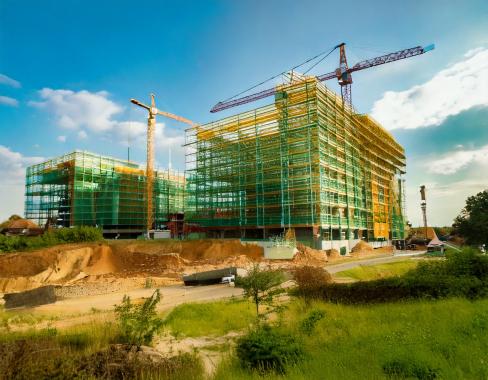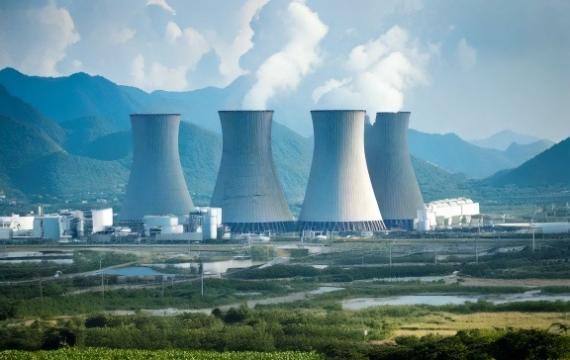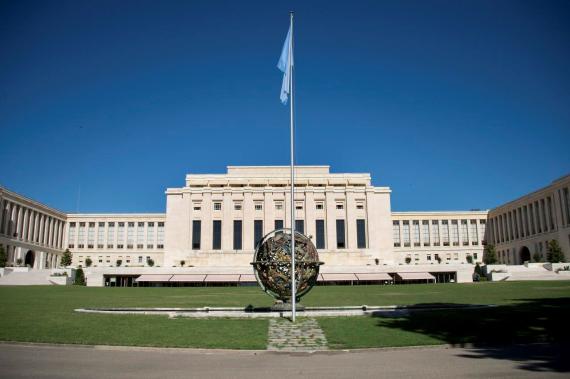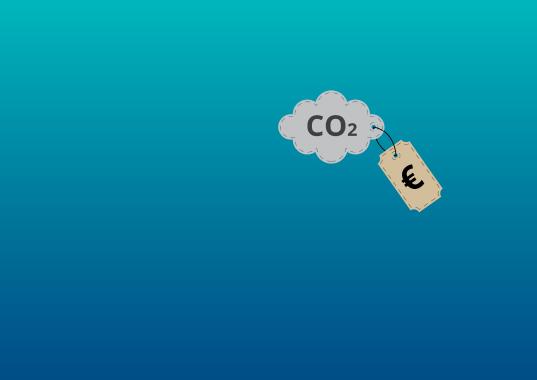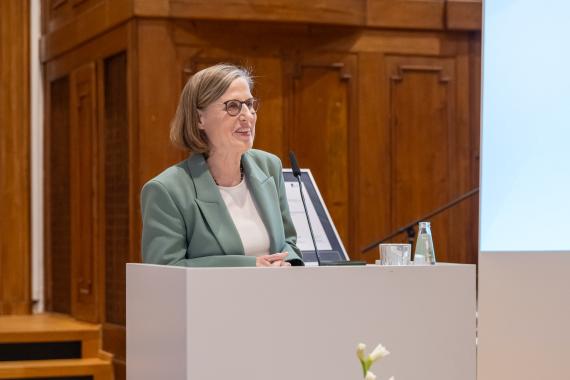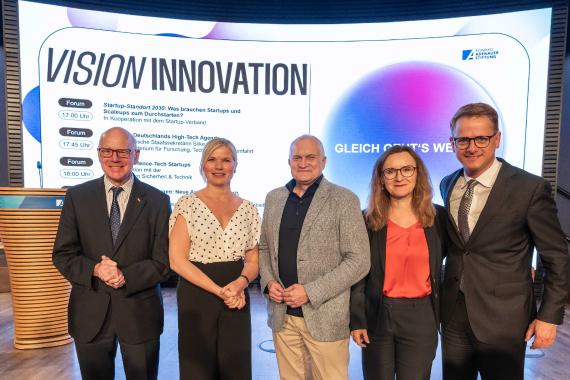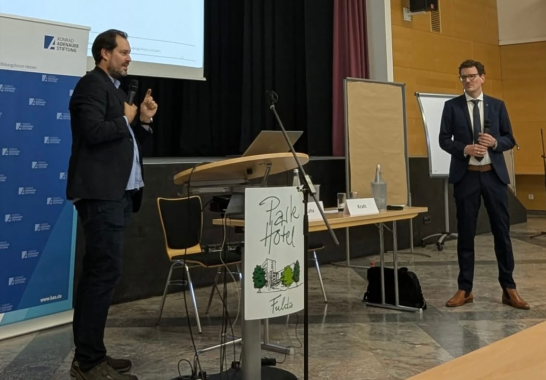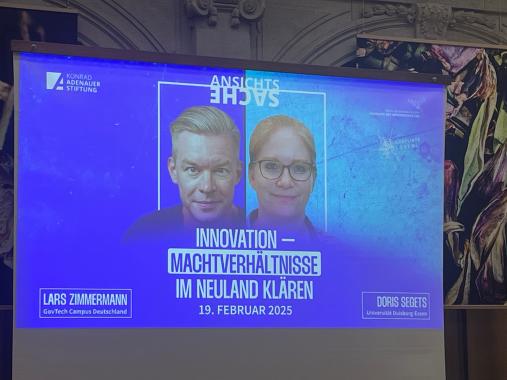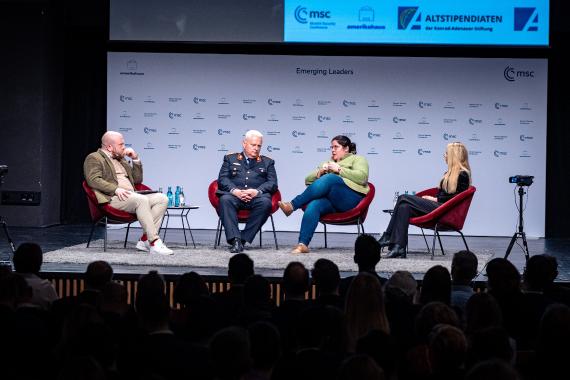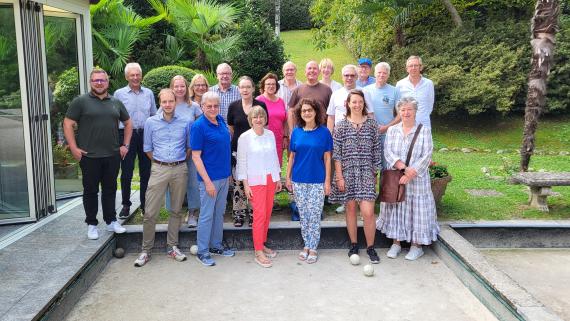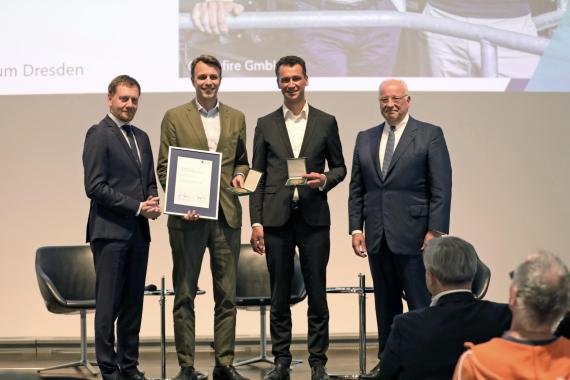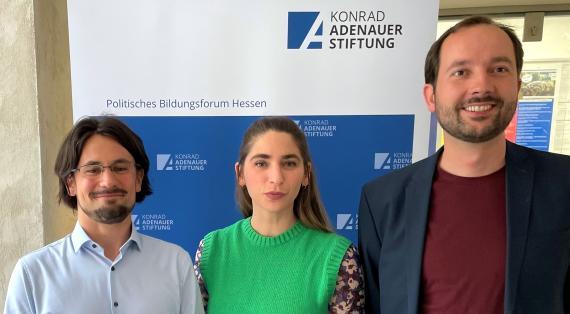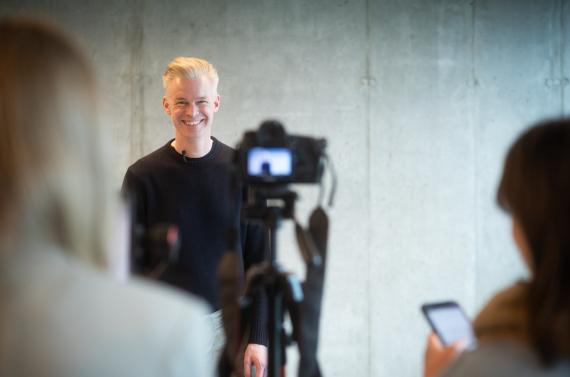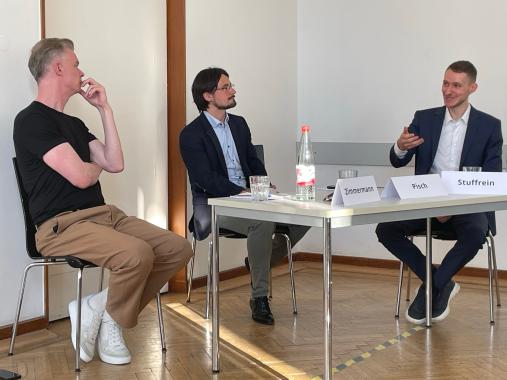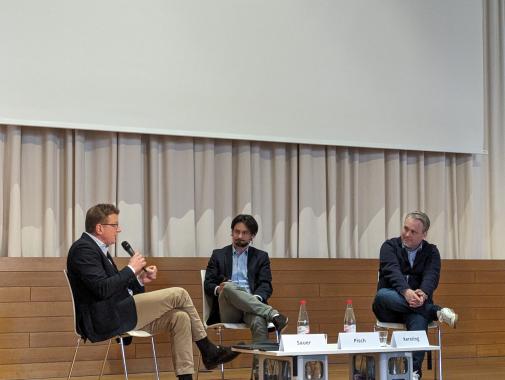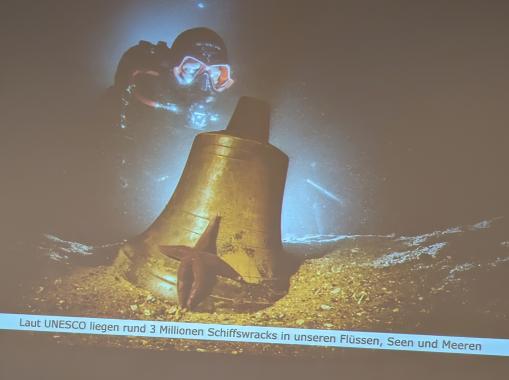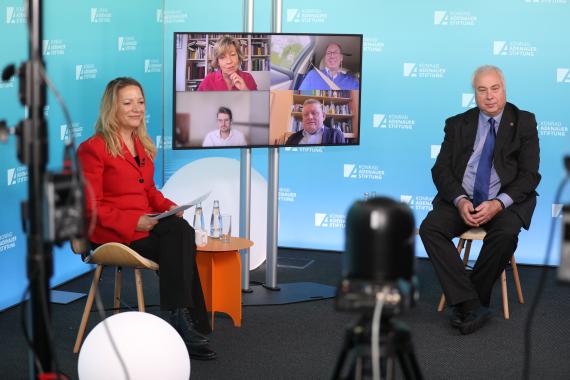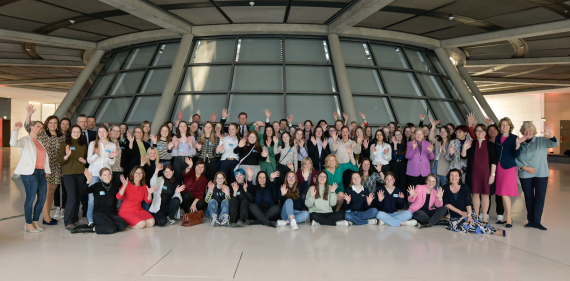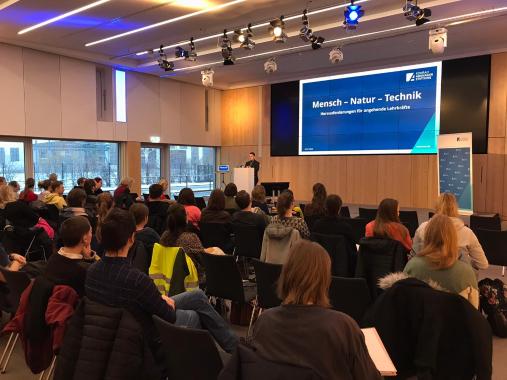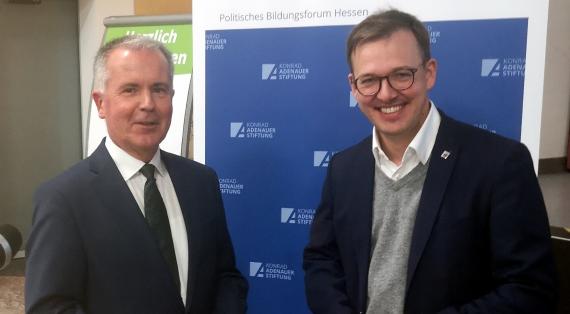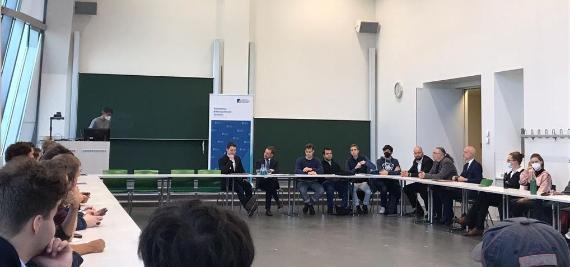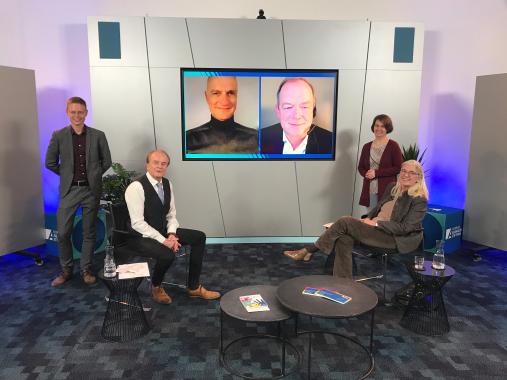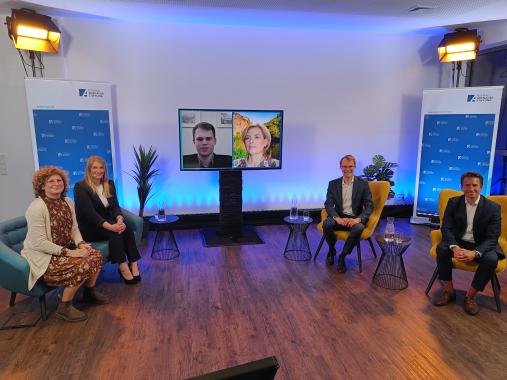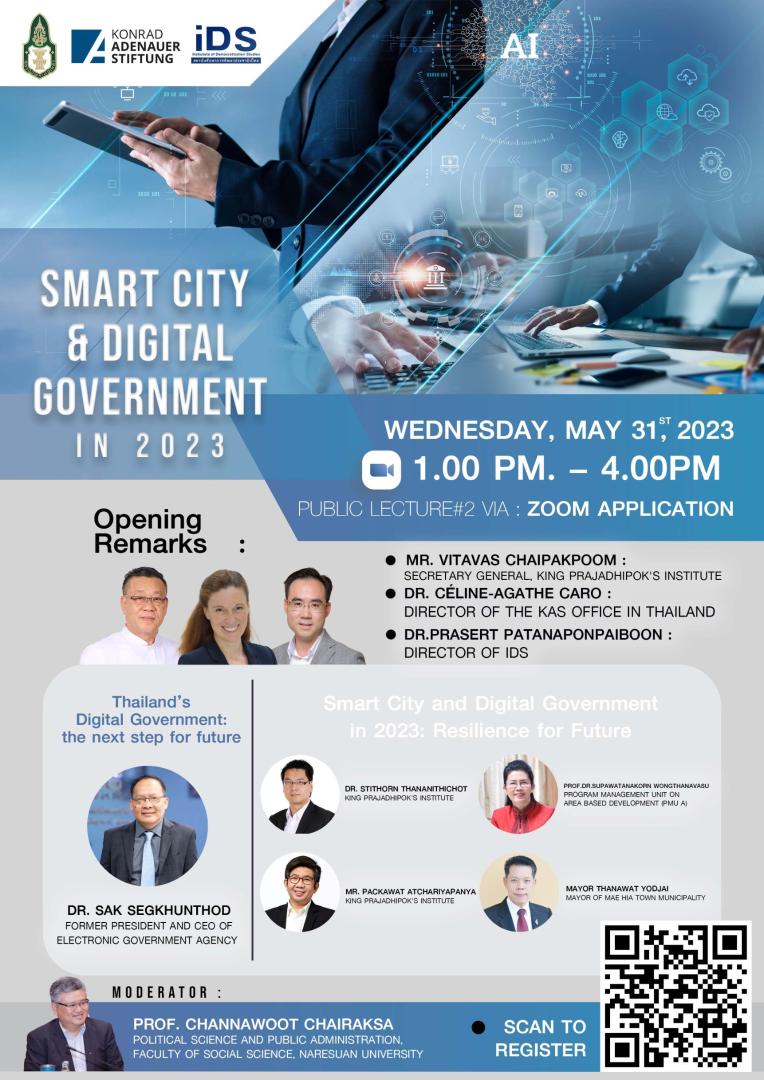The content of physics concerns physicians, its impact concerns everyone.
At a glance
- Science, research and technology shape our lifestyles and influence our values. It is therefore important to engage in these topics, think about the and participate in the discussion.
- Science and research are indispensable when it comes to improving quality of life. Current problems, too, such as climate change or the energy transition cannot be solved without science.
- Unbridled technological progress is throwing society and the environment out of balance. Unreflected thinking about feasibility leads to ethical problems and potentially violates human dignity.
- The economic potential of knowledge-intensive sectors is enormous. Especially for countries with few natural natural resources, scientific-technological expertise is the most important productive factor.
- The Konrad-Adenauer-Stiftung realises the importance of science, research and technology and is developing concepts for their further development jointly with external experts.
Content
2. Why discuss science and research?
3. Potential for problem solving
6. Shaping science, research and technology
7. Our offers and projects on the topic
8. Publications, events and media contributions on the topic
The fascination of science
Research helps to understand the world. It recognises natural laws with their mechanisms and regulations. It is fascinating what science and research achieve: from the smallest molecule to the infinity of the universe, from inanimate nature to the diversity of organisms.
Curiosity, a quest for knowledge, the spirit of discovery and ingenuity shape the culture of a “knowledge-based society”, in which know-how has become the most important foundation. Modern societies are inconceivable without science, research, and technology.
Why discuss science and research?
Science and research are not self-sustaining. They cost a lot of money and need government funding. What is to be financed? Where should the research priorities lie?
Science and research are not an end in themselves. Society and science interact with each other. Nevertheless, science needs a high level of autonomy. What does society expect from science? What is science allowed to do, what is it not? What social responsibility does science bear?
Science, research and technology harbour great opportunities but also risks. Questions arise that cannot be answered by science alone: What risks is a society prepared to bear? What is acceptable, what is not?
Ultimately, it is about the question of how we want to live in future. Science, research and technology shape our lifestyles and influence our values. That is why it is up to all of us to show initiative and join in the discussion.
Potential for problem solving
Science and research improve quality of life. They contribute to solving people's fundamental problems: in terms of health, nutrition, resources and the environment. The rising life expectancy with good health are a positive example of this. The Corona crisis, too, has demonstrated how necessary good research is. Upcoming challenges such as climate change, the energy revolution or species extinction cannot be overcome without science.
But there are also downsides: Excessive technological progress is throwing society and the environment out of balance. Unreflective feasibility thinking leads to ethical problems and potentially violates human dignity and the humane in society.
That is why we not only need scientific-technological expertise, but also the ability to reflect and strength of judgement.
Economic potential
The knowledge-intensive areas of the service and manufacturing industry are growing particularly fast, they provide the majority of skilled jobs and have high value-added potential.
Science, research, and technology are the foundations of these knowledge-intensive industries. They stimulate economic life. In countries lacking in raw materials, such as the Federal Republic of Germany, scientific-technological expertise is the most important productive factor.
International competition
That is why all industrialised countries are expanding their research systems. With the “Excellence Strategy”, the “Pact for Research and Innovation” and other funding instruments, the German Federal Government is supporting universities and non-university research institutions. It is about creating framework conditions for high-quality research.
Germany is competing internationally to attract business to the region. The German research system is efficient, but there is great need for improvement.
Shaping science, research and technology
The Konrad-Adenauer-Stiftung is cooperating with external experts to draw up concepts on how science, research and technology are to be further developed. It identifies problems and possible solutions.
The foundation integrates scientific, research and technology policy into larger contexts, and connects it with social and economic policy. It refers to the “human-centred perspective” of scientific-technological change.
Our offers and projects on the topic
Publication and website projects
As a political foundation, the Konrad-Adenauer-Stiftung is particularly interested in linking science and politics: As part of a “Science Network”, prominent experts are developing positions on scientific, research, higher education and innovation policy. What is more, a research project is examining scientific policy advice in Germany.
The Konrad-Adenauer-Stiftung’s Science Network
The Konrad Adenauer Stiftung has set up an independent panel of experts with renowned personalities from the world of science, which has drawn up statements on fundamental and current issues of science and higher education policy. The position papers are listed on the following overview page.
Scientific Policy Advice
An important task of science is to advise politics and society. Especially in the Corona crisis it became clear how important scientific advice is for political action.
On the political agenda are many important challenges that require scientific expertise such as climate change, the energy revolution, species and environmental protection.
Against this backdrop, the Konrad-Adenauer-Stiftung is analysing scientific policy advice in Germany and drawing up proposals for its further development.
Learn more about the publications on scientific policy advice
Scholarship- and career-orientated offers
The Konrad-Adenauer-Stiftung provides doctoral and post-doctoral scholarships to those seeking an academic career at higher education institutions or universities, and who have thus decided to work in research.
Scholarships for Doctoral Candidates
With the doctoral funding, the foundation has been supporting academically outstanding and junior researchers active in social policy on their path towards quickly and successfully completing their project since 1969. In doing so, we not only support the process of scientifically compiling the doctoral publication, but also prepare scholarship holders for taking on responsibility in leading positions.
Scholarships for Post-Doctoral Candidates
As a result of a decision by the Budget Committee of the German Bundestag on 2013, which enables organisations for the promotion of young talent to fund post-doctoral qualifications, the Konrad-Adenauer-Stiftung has also been providing scholarships to post-doctoral candidates since 2015. Our goal is to support socially committed, outstanding scientists with their scientific career, and to advise them on all issues relating to the scholarship.




